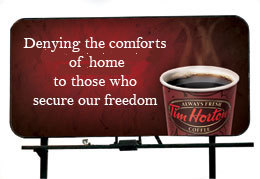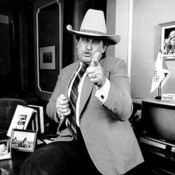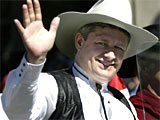Legacy extends deep into politics
Greenspan took his first steps into politics in 1968 when Anderson asked him to join Nixon's presidential campaign. Greenspan helped coordinate domestic-policy research and analyze poll data, writing computer programs to project the electoral vote count.
Greenspan had met Anderson years earlier when both formed part of the intellectual circle of novelist Ayn Rand, a Russian émigré whose writings celebrated laissez-faire capitalism. Three of the essays in Rand's 1967 book "Capitalism: The Unknown Ideal" were authored by Greenspan, then the 41-year-old president of an economic consulting firm in New York City.
"Chronic deficit spending (is) the hallmark of the welfare state," the future Fed chairman wrote. "The welfare state is nothing more than a mechanism by which governments confiscate the wealth of the productive members of a society to support a wide variety of welfare schemes."
Greenspan's parting 'gift'
Widely viewed as the most successful chairman in the Fed's 92-year history, Mr Greenspan presided over an era of low inflation rates, low unemployment and the longest economic expansion in US history – a decade of uninterrupted growth from March 1991 to March 2001.
In Mr Greenspan's early days, Wall Street investors were concerned that Mr Greenspan, who had advised Republican presidents Richard Nixon, Gerald Ford and Ronald Reagan, would lack the iron-willed independence needed to fill the shoes of Paul Volcker. Mr Volcker conquered a decade-long bout of double-digit inflation by driving up interest rates to levels not seen since the Civil War.
Showing his own inflation-fighting credentials, Mr Greenspan pushed through a half-point rate increase at his first Fed policy meeting. After just two months on the job, the stock market crashed. It was called Black Monday, October 19, 1987; many investors blamed Mr Greenspan's credit-tightening.
It was the first of many economic crises he would face:
* From 1989 to 1992, hundreds of savings and loans and banks went out of business.
* A global currency crisis began in Asia in 1997 and spread to Russia. Some 40 per cent of the global economy was pushed into recession. The US economy seriously was threatened before the Fed stepped in with a series of rapid-fire rate reductions in 1998.
* The stock market bubble burst in 2000, wiping out trillions of dollars in paper wealth.
During Mr Greenspan's 18½ years in office, the US had two recessions. The first was in 1990-91, when oil prices spiked after Iraq invaded Kuwait. The second came in 2001. Both were mild downturns that lasted eight months each.
But Greenspan's record isn't completely unblemished.
That period of non-stop growth, from 1991 to 2000, could have been managed better, said Marc Lévesque, chief strategist at TD Securities.Specifically, Greenspan should have started raising borrowing costs more aggressively toward the end of that run in order to cool the U.S. economy and engineer a softer landing, Lévesque said. Instead, a recession hit in 2001, and relatively low interest rates helped inflate the dot-com stock bubble before it burst."The more the rise, the harder the fall. It didn't have to be that way," Lévesque said."I hope they don't make the same mistake twice," he added, citing concern the frothy U.S. housing market could collapse.In a famous speech in 1996, Greenspan had warned of "irrational exuberance" in financial markets, but nobody listened.Greenspan's policy strategies also had a direct influence on Canada, both in terms of the health of the American economy and our own interest-rate environment and currency.Surging commodity prices, and most recently oil and gas prices, are behind much of the Canadian dollar's meteoric rise since the start of 2003.Greenspan can also take some credit or, as Canadian exporters may argue, blame.He kept short-term U.S. interest rates at rock-bottom levels in the wake of the Sept. 11 terrorist attacks. In response, foreigners dumped U.S. government bonds and headed for higher-yield offerings, including Canadian bonds, thus fuelling demand for loonies.He slashed the funds rate from 3.5 per cent on Sept. 10, 2001, to 1.75 per cent by the end of 2001 and 1 per cent by 2003.Greenspan's biggest mistake was going overboard in reaction to 9/11, said Andrew Pyle, senior financial markets economist at the Bank of Nova Scotia."It was easing of fear as opposed to easing on fact."You can give Greenspan the benefit of the doubt immediately following the terrorist attack, but he just kept on going, Pyle said."Maybe consumers were overdue for a break after 10 years of non-stop growth in spending," he said. "He artificially kept them alive through low interest rates, and that probably exacerbated the (consumer) debt situation we have now."The miracle economy
Accounts of the U.S. economic "miracle" of the 1990s typically omit one embarrassing detail: its dependence on massive amounts of foreign money. Here's a graph making that point: the net foreign debt of the U.S. (net meaning the difference between U.S. claims on foreigners and foreign claims on the U.S.). From the end of the First World War until the early 1980s, the U.S. was a net creditor to the rest of the world. Creditorhood is often thought to be the financial manifestation of imperial power; Britain was the world's major creditor country during its 19th century heyday, and the shift in financial power in the 20th century from Britain to the U.S. correlated well with what happened in the geopolitical sphere.
With the explosion of the U.S. budget and trade deficits in the early 1980s, this all changed, as the U.S. government, corporations, and financial institutions borrowed heavily abroad. In 1982 - the year that Wall Street's great bull market began - the U.S. international debt account dipped solidly into the red, with net debts equivalent to 1.1% of GDP. (Debt doesn't figure in the calculation of GDP - it's just a way of making comparisons over time.) Since then, the U.S. debt position has gone deeper into the red every year except 1991 and 1993, reaching -22.6% in the second quarter of 1999, or just over $2 trillion. The slippage has continued even though what was once blamed as the culprit, the federal budget deficit, has turned into a supposedly virtuous surplus.
There's no doubt that this inflow of borrowed funds - $1.3 trillion worth since Bill Clinton took office - has greatly stimulated both the real economy and the financial boom, by allowing people to borrow to consume (this is the most consumption-intensive expansion in post-World War II history) and by allowing people and corporations to borrow to buy stock.
People used to worry about this a lot in the 1980s; worry has been more muted in the 1990s, though Alan Greenspan does muse on it now and then. Last May, in a speech in Chicago, he said:
A more distant concern, but one that cannot be readily dismissed, is the very condition that has enabled the surge in American household and business demands to help sustain global stability: our rising trade and current account deficits. There is a limit to how long and how far deficits can be sustained, since current account deficits add to net foreign claims on the United States.
It is very difficult to judge at what point debt service costs become unduly burdensome and can no longer be sustained. There is no evidence at this point that markets are disinclined to readily finance our foreign net imbalance. But the arithmetic of foreign debt accumulation and compounding interest costs does indicate somewhere in the future that, unless reversed, our growing international imbalances are apt to create significant problems for our economy.
The risk is that at some point, the capital inflow will reverse, and leave the U.S. without a source of borrowed funds to power fresh consumption and stock-buying and with lots of bills to pay. That's not unlike what happened to Mexico in 1994 or Thailand in 1997. But those are weak countries, not an imperial colossus. What happens to a colossus when it gets cut off is very hard to predict. Maybe it will luck out; Asia and Europe could recover, and the U.S. could export its way out of debt by selling them 747s, Windows 2000, and Shania Twain CDs. Or maybe the U.S. in the early 2000s could be like Japan in the 1990s - stuck with a massive hangover from a burst bubble. Hard to say.
Sir Bubble
Which isn't to deny that the bubble's most important promoter, more important even than Jack Grubman, was a real movement conservative - Alan Greenspan, Ayn Rand's most famous disciple.
It's gratifying to see Greenspan's stock sinking. Several analysts have written up his embarrassing speech at the Federal Reserve Bank of Kansas City's annual elite retreat at Jackson Hole. But since this publication has been making fun of Greenspan for 15 years, long before it was fashionable, some piling on is in order.
Greenspan argued that no one could really have known a bubble was underway - and even if he could, there was nothing he could have done about it anyway. Keeping to his line during the mania, he maintained that a bubble can only be recognized after its bursting, which might be a nice Hegelian point, but isn't a helpful guide to policy. Lots of observers less esteemed than Greenspan noticed one at the time, and presumably it's his job to stay on top of these things.
He could have raised interest rates earlier, which would have burst the bubble, though it might have thrown the economy into recession as well; he can't be faulted for worrying about that. But he could have raised margin requirements on stocks - forcing investors who buy shares with borrowed money to put up more cash. This would reduce demand for stocks, but also send a hostile signal to the markets. At Jackson Hole, he argued that raising margin requirements would have had no effect on stock prices.
That's not what he said at a policy meeting in September 1996. After listening to then Fed governor, now top Bush economic advisor, Lawrence Lindsey offer a comprehensive case that a bubble was well underway, Greenspan commented: "I recognize that there is a stock market bubble problem at this point and I agree with Governor Lindsey that this is a problem we should keep an eye on....We do have the possibility of raising major concerns by increasing margin requirements. I guarantee that if you want to get rid of the bubble, whatever it is, that will do it. My concern is that I am not sure what else it will do." Presumably his worry was about effects on the real economy, a reasonable concern, but he knew there was a bubble and that he could have pricked it. He did speak the phrase "irrational exuberance" a few months later, but when that was greeted with bad reviews, he turned into the New Economy's leading promoter and the guarantor of stock prices.
Tags
Alan GreenspanAyn Rand
Federal Reserve Chairman


